10:37 AM 1/24/2019 - Michael Novakhov - SharedNewsLinks℠: Canaris - Heydrich – Google Search | German Intelligence Chief Wilhelm Franz Canaris - The Operation Trump and The New Abwehr: A Study In Psychohistory by Michael Novakhov - Google Search | German Intelligence Chief Wilhelm Franz Canaris | Canaris and Heydrich - Axis History Forum | Canaris - Heydrich Gay Love Affair - Google Search
- Get link
- X
- Other Apps
 canaris heydrich – Google Search | ||
 | ||
| canaris heydrich – Google Search | ||
|
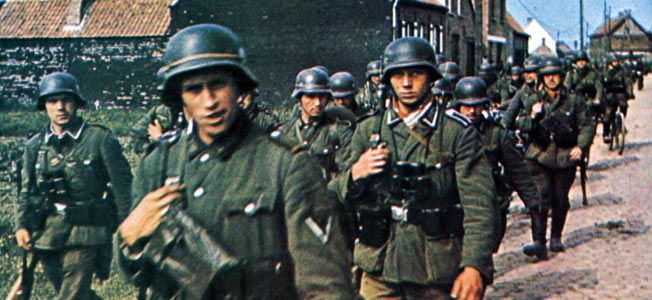

| Michael Novakhov - SharedNewsLinks℠ | ||||||||||||||||||||||||||||||||||||||||||||||||||||
|---|---|---|---|---|---|---|---|---|---|---|---|---|---|---|---|---|---|---|---|---|---|---|---|---|---|---|---|---|---|---|---|---|---|---|---|---|---|---|---|---|---|---|---|---|---|---|---|---|---|---|---|---|
| Felix Sater - Google Search | ||||||||||||||||||||||||||||||||||||||||||||||||||||
Thu, 24 Jan 2019 09:02:26 -0500
 | ||||||||||||||||||||||||||||||||||||||||||||||||||||
| Washington Monthly | A Connection Between the Moscow Tower and the Trump Tower Meeting | ||||||||||||||||||||||||||||||||||||||||||||||||||||
Thu, 24 Jan 2019 08:32:33 -0500
It was flattering when Felix Sater reached out to me to see if I would follow up on my idea to write a screenplay based on his life, but I’m really not very interested in getting mixed up in his business. The idea was actually a joke, but Sater took it seriously. In truth, I don’t think I’d be up to the challenge of trying to unravel his life for the big screen.
Sater is in the news again because of his central role in brokering a deal between IC Expert CEO Andrey Rozov and the Trump Organization to build a skyscraper in Moscow that would have been the tallest building in Europe. On Tuesday, Buzzfeed News published the detailed plans for that tower. I now have reason to believe that there’s a connection between the Moscow Tower deal, which was formalized in a letter of intent signed on October 28, 2015, and the infamous Trump Tower meeting that occurred on June 9, 2016. But fully explaining the link is not possible in a blog-length post. Instead, I will just point you in the right direction.
Back in October 2018, independent journalist Wendy Siegelman did some sleuthing and discovered that in December 2015 Felix Sater and Andrey Rozov had teamed up to sell a Manhattan property located at 22 West 38th Street. It’s not that surprising that Sater and Rozov were working on two distinct real estate deals at the same time, but the New York-based accountant, Ilya Bykov, who was involved in the West 38th Street transaction is the same accountant who helped Azerbaijani oligarch Aras Agalarov create a shell company in Delaware just prior to the June 9, 2016 Trump Tower meeting. Agalarov, you will remember, was responsible for bringing Donald Trump’s beauty contest to Moscow in 2013, and it was his son Emil who reached out to Donald Trump Jr. to offer dirt on Hillary Clinton.
The shell company, called Silver Valley Consulting, has attracted the attention of investigators because eleven days before the June 9 meeting, Mr. Agalarov moved “$19.5 million from an offshore investment vehicle to a US bank account” for the newly established corporation.
As independent investigator Scott Stedman put it, “The intersection of Rozov, Sater, Bykov, Agalarov and the shell company that purchased 22 West 38th Street, resulting in an $8M profit for Rozov in the midst of negotiating Trump Tower Moscow will surely pique the interest of congressional and federal authorities.”
The reason these connections cannot be concisely explained in a blog post is because they sprawl into many different areas of interest. Much of this can be explored in Siegelman’s article from last October. The Cliff Notes version that I will give you here is that it centers around the Russians’ efforts to fight back against the Magnitsky Act. All the work that Natalia Veselnitskaya was doing in the United States centered around that effort, very much including her agenda in the Trump Tower meeting. In fact, the simplest way of understanding the Trump Tower meeting is that it was a proposed deal to provide the campaign with dirt on Clinton in exchange for a commitment to roll back the Magnitsky Act if Trump were elected.
Up until now, there has been no suggestion that there was a similar connection between the Moscow Tower proposal and the Magnitsky Act, but some of same players are emerging as having been involved in both of these negotiations. For example, the accountant Ilya Bykov connects both with Sater and Rozov’s real estate deal and with Agalarov’s shell company. In the latter case, the suspicion is that Agalarov was moving $20 million into an American account for some purpose related to the Trump Tower meeting.
Some of the best reporting on the Russia investigation has been done by independent journalists. Scott Stedman has been doing excellent work tracking down the financial shenanigans involved, and he reported in December that the Trump Organization had not done much due diligence before partnering with the IC Expert to build their Moscow skyscraper.
In that piece, Stedman does not mention Felix Sater. But, of course, it was Sater who took the lead in making these connections on Michael Cohen’s behalf. Whether by design or by accident, Sater could have compromised Donald Trump and the Trump Organization, leaving them vulnerable to exposure and blackmail. As with everything else in his life, it’s very hard to understand here who Sater was working for and what kind of game he was playing. In some ways, I’d enjoy writing a screenplay about his life, but I don’t think I’ll ever be able to understand all of this well enough to do him justice.
As for the implications for the Russia investigation, there is clear evidence here that the Trump Organization was looking for ways to ingratiate itself with Vladimir Putin in furtherance of getting a deal to build a tower in Moscow. The Russians dangled a deal, got Trump to sign on the dotted line, and then held that over him as they attempted to get him to make commitments should he actually become president. The Magnitsky Act was one of their main targets, but so was undermining the European Union, breaking up NATO, getting America to leave Syria, getting a recognition of their right to Crimea, and sanctions relief. Trump has pursued all of these things and more since becoming president.
| ||||||||||||||||||||||||||||||||||||||||||||||||||||
| Trump's approval rating sinks in new poll as he gets most of blame for shutdown | ||||||||||||||||||||||||||||||||||||||||||||||||||||
Thu, 24 Jan 2019 08:31:23 -0500
A strong majority of Americans blame President Donald Trump for the record-long government shutdown and reject his primary rationale for a border wall, according to a new poll that shows the turmoil in Washington is dragging his approval rating to its lowest level in more than a year.
Overall, 34 percent of Americans approve of Trump's job performance in a survey conducted by The Associated Press-NORC Center for Public Affairs Research. That's down from 42 percent a month earlier and nears the lowest mark of his two-year presidency. The president's approval among Republicans remains close to 80 percent, but his standing with independents is among its lowest points of his time in office.
"Trump is responsible for this," said poll respondent Lloyd Rabalais, a federal contractor from Slidell, Louisiana, who's not affiliated with either political party.
The 47-year-old has been furloughed for more than a month. He said he'd need to start drawing on his retirement savings next week to pay his bills if the shutdown continues.
"I do support a wall, but not the way he's handling it," Rabalais added. "Trump guaranteed everybody that Mexico would pay for the wall. Now he's holding American workers like me hostage."
The drop in approval comes as Trump begins the third year of his presidency under the weight of the longest government shutdown in U.S. history, an international trade war that's straining the global economy and new revelations about his push for a real estate deal in Russia during his 2016 campaign.
Compared with earlier presidents, Trump's approval rating has been relatively stable over the course of his presidency, ranging from the mid-30s to the mid-40s.
By contrast, President Barack Obama never fell below 40 percent in polling by Gallup. Still, five presidents since Gallup began measuring presidential approval have had their rating fall into the 20s at least once, including Harry S. Truman, Richard Nixon, Jimmy Carter, George H.W. Bush and George W. Bush. Trump has never fallen into that range of historic lows, but he's also the only president never to have reached 50 percent in Gallup's polling.
The new AP-NORC poll shows most Americans see the shutdown as a major problem, and they blame Trump far more than congressional Democrats for the mess that has ensnared the lives of roughly 800,000 government workers who are going without pay.
Sixty percent of Americans say Trump bears a great deal of responsibility for the shutdown. About a third place the same amount of blame on congressional Democrats (31 percent) or Republicans (36 percent).
Sixty-five percent of Americans, including 86 percent of Democrats, 69 percent of independents and 33 percent of Republicans, call the shutdown a major problem.
Trump may be popular overall with Republicans, but a sizable share holds him responsible for the current situation. Almost 3 in 10 Republicans think Trump bears a great deal of responsibility, while 73 percent of his party says he's at least partly responsible.
"The large part of the responsibility belongs to the president because he made the decision," said poll respondent Sandra Olson, of Northwood, Iowa. The 76-year-old registered Republican said she voted for Trump once and likely will again.
"We have never in my lifetime seen a president who has been so maligned and attacked and vilified," Olson said.
Trump's demand for a $5.7 billion border wall is also unpopular.
Overall, 49 percent of Americans oppose the plan to build a massive wall along the Mexican border; 36 percent of the nation is in favor. Opinions fall largely along ideological lines, with 8 in 10 Democrats opposing the wall and nearly 8 in 10 Republicans supporting it.
About 7 in 10 supporters of the wall prefer to extend the shutdown than to reach a deal without funding it, while a nearly identical number on the other side would rather the shutdown continue than provide that funding.
The poll shows significant skepticism of the president's argument that a wall would significantly reduce crime, stem the flow of illegal drugs or help the U.S. economy. The poll was conducted the week after Trump used such factors to justify his demand for the wall during a primetime address from the Oval Office.
In the nationally televised speech, he highlighted the case of one immigrant in the country illegally accused of beheading and dismembering an American citizen.
About 6 in 10 Americans do say the wall would at least slightly decrease the number of people entering the U.S. illegally, though only 3 in 10 think the number would significantly decrease. Yet just 35 percent of Americans believe the wall would make the country safer, while a majority of Americans — 57 percent— believe it would make no difference to safety in the U.S. Only 21 percent believe the wall would significantly reduce the availability of illegal drugs in the nation, though 28 percent say access to illegal drugs would be slightly reduced; 49 percent say the wall would have no effect.
On the economy, about as many Americans say the border wall would do more to help — almost 3 in 10 — as say it would do more to hurt; 43 percent say the wall would not make much difference to the U.S. economy.
Poll respondent Kelley Thorson, of St. Robert, Missouri, who backed Trump in the 2016 election, says she supports the wall but largely disagrees with the president's rationale.
"I can't say it would make us safer," the 57-year-old said. "Criminals are going to get here no matter what."
While partisan opinions of Trump have remained relatively constant throughout his presidency, the poll shows that disapproval has grown particularly among independents who do not lean toward either party.
Just 28 percent of independents say they approve, compared with 71 percent who disapprove. In December, 37 percent of independents approved of Trump's job performance, while 58 percent disapproved.
Women also are more likely to disapprove today compared with a month ago — 71 percent to 58 percent. And 76 percent of college graduates disapprove today, compared with 65 percent who disapproved in December.
The president isn't doing anything well right now, said poll respondent J. Edwin Hixson, a 71-year-old retired truck driver from Harrisburg, Pennsylvania, who didn't vote for Trump or Democrat Hillary Clinton in the 2016 election.
"This isn't a reality show. We're in serious trouble," he said.
The AP-NORC poll of 1,062 adults was conducted Jan. 16 to 20 using a sample drawn from NORC's probability-based AmeriSpeak Panel, which is designed to be representative of the U.S. population. The margin of sampling error for all respondents is plus or minus 4.1 percentage points.
Respondents were first selected randomly using address-based sampling methods, and later interviewed online or by phone.
| ||||||||||||||||||||||||||||||||||||||||||||||||||||
| German Intelligence Chief Wilhelm Franz Canaris - The Operation Trump and The New Abwehr: A Study In Psychohistory by Michael Novakhov - Google Search | ||||||||||||||||||||||||||||||||||||||||||||||||||||
Thu, 24 Jan 2019 07:42:48 -0500
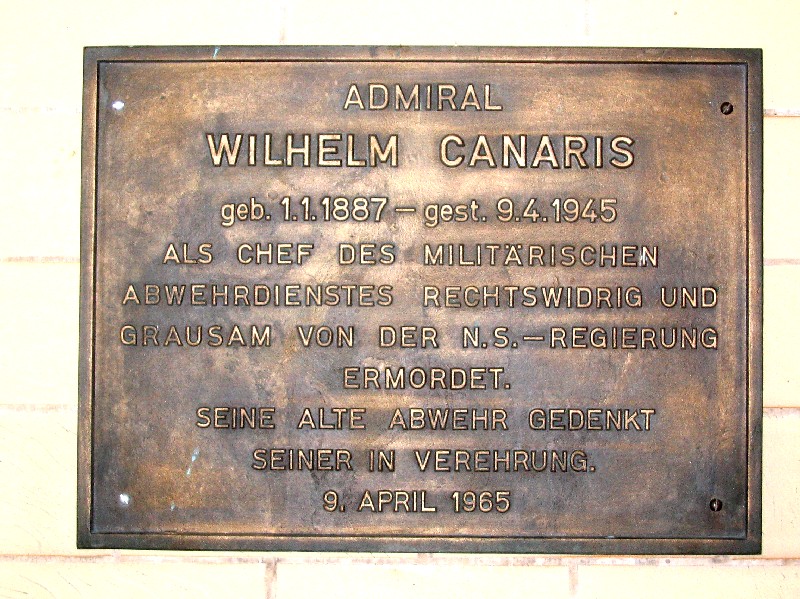 
>> Mike Nova’s Shared NewsLinks Review In Brief
» German Intelligence Chief Wilhelm Franz Canaris
24/01/19 06:17 from Mike Nova's Shared Newslinks Michael_Novakhov shared this story from Warfare History Network. Adolf Hitler’s spymaster, Admiral Wilhelm Canaris, was actually a dedicated anti-Nazi who did everything he could to frustrate the Führer’s plans. by David...
» Canaris and Heydrich - Axis History Forum
24/01/19 06:16 from Mike Nova's Shared Newslinks Michael_Novakhov shared this story . Canaris and Heydrich #1 Post by Ezboard » 29 Sep 2002, 21:37 GFM2001 Member Posts: 55 (8/20/01 12:32:55 pm) Reply Canaris and Heydrich ------------------------------------------------------------...
» Canaris - Heydrich Gay Love Affair - Google Search
24/01/19 05:53 from Mike Nova's Shared Newslinks Michael_Novakhov shared this story .
» Canaris - Heydrich Gay Love Affair - Google Search
24/01/19 05:52 from Mike Nova's Shared Newslinks Michael_Novakhov shared this story .
» Canaris - Heydrich Gay Love Affair - Google Search
24/01/19 05:50 from Mike Nova's Shared Newslinks Michael_Novakhov shared this story .
» Canaris - Heydrich Gay Love Affair - Google Search
24/01/19 05:48 from Mike Nova's Shared Newslinks Michael_Novakhov shared this story .
» Canaris - Heydrich Gay Love Affair - Google Search
24/01/19 05:47 from Mike Nova's Shared Newslinks Michael_Novakhov shared this story .
» Canaris - Heydrich Gay Love Affair - Google Search
24/01/19 05:46 from Mike Nova's Shared Newslinks Michael_Novakhov shared this story .
» Canaris - Heydrich Gay Love Affair - Google Search
24/01/19 05:45 from Mike Nova's Shared Newslinks Michael_Novakhov shared this story . | ||||||||||||||||||||||||||||||||||||||||||||||||||||
Thu, 24 Jan 2019 06:17:28 -0500
 Adolf Hitler’s spymaster, Admiral Wilhelm Canaris, was actually a dedicated anti-Nazi who did everything he could to frustrate the Führer’s plans.by David Alan Johnson
In most popular spy thrillers, secret agents are tall, handsome, virile, and irresistible to women. Whether their name is Dirk Pitt, Jack Ryan, or James Bond, all are hard-drinking, well-tailored ladies’ men. At the end of the last chapter, the hero invariably saves the world, wins the girl and drives off into the sunset behind the wheel of a fancy sports car.

The many plots to assassinate the madman responsible for the death of millions... Get your copy of Warfare History Network’s FREESpecial Report, Killing Adolf Hitler
Wilhelm Canaris was no James Bond. He was just under five feet, four inches tall, which nearly kept him out of the German Navy. He only drank one glass of wine with dinner, and he had no women in his life except his wife, Erika, and their two daughters. But despite his outwardly non-heroic appearance and lifestyle, he might well have done more to save the world from Adolf Hitler than any of his contemporaries, either German or Allied.
One thing Canaris did have in common with James Bond was that both were naval officers. Canaris entered the German Navy in April 1905, as an 18-year-old cadet at the Kiel naval academy. By the time World War I broke out in 1914, he was an officer on the cruiser Dresden serving under Admiral Graf von Spee, who sank the British cruisers Good Hope and Monmouth off the coast of Chile in November 1914. A few weeks later, von Spee’s squadron was cornered by the British off the Falkland Islands. Canaris’s ship managed to escape, but was trapped in Cumberland Bay, Chile, and blown up to prevent capture. The crew was interned by the neutral Chileans, but Canaris escaped. He was given a counterfeit passport by the German consulate in Santiago and crossed the Andes Mountains into Argentina. From Buenos Aires, he sailed to Rotterdam and traveled by train to Berlin.
After recovering from the effects of his trip—he was a physical wreck when he arrived in Berlin—Canaris was assigned as an intelligence officer in Spain, a job that was to change his life. He was good at his new work, and passed a great deal of useful information regarding Allied shipping back to naval headquarters, but he wanted to return to sea. Eventually, Canaris got his wish, finishing the war as the captain of a U-boat. Between his intelligence activities and his U-boat service, he was credited with sinking 18 Allied ships.
Canaris Approved of the Early Nazi Party
After the armistice in 1918, Canaris remained in the navy. He served aboard the cruiser Berlin and the battleship Schlessein, and spent most of the 1920s at sea. In September 1934, a year and a half after Adolf Hitler came to power, Canaris was appointed commander of the naval base at Swinemünde. It was a dead-end job and Canaris, by this time a captain, fully expected to remain at Swinemünde until he retired. But a few months later, he was offered the position as head of Germany’s secret military intelligence, the Abwehr. The high command had noticed his excellent record as an intelligence officer in 1916, and suggested him for the new post. Canaris was appointed chief of the Abwehr on New Year’s Day 1935, his 47th birthday, and was promoted to admiral a short time later.
When the Nazis came to power in 1933, Canaris thought they were just what the new Germany needed. Hitler promised to rearm Germany and re-build the German navy, two goals that the old sailor strongly supported. But when Hitler began murdering his political rivals, Canaris became a determined opponent of the Nazi regime. The event that turned him into a dedicated anti-Nazi took place on June 30, 1934. During the infamous “Night of the Long Knives,” Hitler ordered the execution of hundreds of his political rivals. Among those assassinated was Ernst Röhm, Hitler’s former friend and chief of staff. After that, Canaris became Hitler’s sworn enemy. On the day that World War II began, he predicted that a victory by Hitler would mean catastrophe. And when France surrendered in June 1940, Canaris told associates: “Should Hitler win, this will certainly be the end of Germany. And if Hitler loses, this will also be the end of Germany and ourselves, too, for having failed to get rid of him.”
Canaris began using his position to oppose Hitler. He was at Berchtesgaden on August 22, 1939, when Hitler announced his plans for invading Poland. Although everyone at the meeting had been prohibited from taking notes, Canaris stood at the back of the room and surreptitiously jotted down everything Hitler said. As soon as the meeting ended, he drove to the Hotel of the Four Seasons in Munich and wrote down everything he could remember about Hitler’s invasion plans, using his notes to refresh his memory. When he had finished, Canaris gave his summary to Colonel Hans Oster, a fellow anti-Hitler conspirator. Oster made a copy of the comments and gave it to the Dutch military attaché in Berlin, Major G.J. Sas, who passed it along to members of the French and British diplomatic corps.
“Nothing Should be Omitted That Would Shorten This War”
As the result of Canaris’s warning, Great Britain and France placed their forces on full alert, and both nations promised to come to Poland’s assistance if attacked by Germany. At dawn on Friday, September 1, the Luftwaffe began bombing targets inside Poland; the Wehrmacht joined the attack a few hours later. World War II had begun. As they had promised, England and France declared war on Germany two days later. On that same day, September 3, Canaris made a promise of his own: “Nothing should be omitted that would shorten this war.”
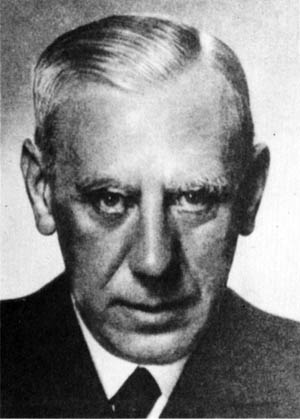 Canaris decided that the best way for him to shorten the war was to mislead and misinform Hitler at every possible opportunity. A few weeks after the invasion of Poland, he informed Hitler that the French were planning a massive attack in the Saarbrücken area. Hitler did not believe him, telling the admiral that Saarbrücken was the strong point in the German line. Hitler was right. No French offensive took place, at Saarbrücken or anywhere else. The Führer would remember this particular incident whenever he was given information by Canaris, and he would also remember that he had been right and Canaris had been wrong. Canaris decided that the best way for him to shorten the war was to mislead and misinform Hitler at every possible opportunity. A few weeks after the invasion of Poland, he informed Hitler that the French were planning a massive attack in the Saarbrücken area. Hitler did not believe him, telling the admiral that Saarbrücken was the strong point in the German line. Hitler was right. No French offensive took place, at Saarbrücken or anywhere else. The Führer would remember this particular incident whenever he was given information by Canaris, and he would also remember that he had been right and Canaris had been wrong.
Hitler’s misgivings were reinforced about six months later, just prior to the invasion of Norway in April 1940. Canaris reported that the British Navy was on the alert, and warned that German transports would be annihilated if a landing was attempted. Hitler read the report and went ahead with the invasion just the same. The landings took place on April 9, 1940, and encountered no interference from the British fleet, although a British destroyer squadron sank several German ships off Narvik the following day.
Hitler was not sure what to make of Canaris, the Abwehr, or the intelligence service in general. They seemed to have a knack for getting things wrong. Hitler and most of his senior officers quickly lost all faith in intelligence because of Canaris’s mistakes, which they had no idea were actually calculated moves. This lack of trust in the Abwehr, and the concomitant refusal to believe any information related by the intelligence wing, would inadvertently become a tremendous advantage for the Allies. Even when Hitler was given reliable information, he usually refused to believe it.
Canaris was not alone in his campaign to oppose Hitler and the Nazis. He had begun a conspiracy that has come to be known as the Schwarze Kapelle, or Black Orchestra. Among its members were General Ludwig Beck, chief of staff of the Army; Colonel Hans Oster, Canaris’s aide; General Erwin von Witzleben, and a number of other high-ranking officers. Besides misleading Hitler, they intended to supply the Allies with all pertinent military, technical and scientific information.
One successful attempt at supplying the Allies with technical information took place in 1939. A package containing many technical drawings and documents was left on the doorstep of the British Embassy in Oslo, from where it was sent on to London via diplomatic pouch. In London, the papers were examined by Dr. R.V. Jones, a scientific expert at British intelligence. When Jones first saw the documents, his mind must have boggled. He was looking at the plans for Germany’s most secret weapons, including radar sets, X-beams (which guided bombers to their targets at night), a homing torpedo and a guided missile that would become known as the V-2 rocket.
Operation Felix
No one has ever proven conclusively that Canaris was behind the delivery of the Oslo Report. It contained a note that was signed by “a well-wishing German scientist,” which was the only clue regarding its origin. But no German scientist would have been able to collect so many top secret documents, smuggle them out of the country and deliver them safely to British Intelligence. The Oslo report clearly had the mark of Canaris’s handiwork.
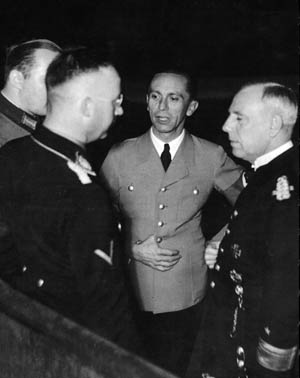 The admiral’s next move against Hitler came in October 1940, just as the Battle of Britain was winding down. Hitler had the idea to invade and capture Gibraltar. With Gibraltar in German hands, Britain would be cut off from their forces in North Africa. The plan looked a good deal easier than an invasion of England, which had already been postponed indefinitely, and might be just as costly to Great Britain and her war effort. The plan, code-named Operation Felix, was put in Canaris’s hands. He spoke fluent Spanish, knew Spanish dictator Francisco Franco, and had a number of agents in place in Spain. The admiral’s next move against Hitler came in October 1940, just as the Battle of Britain was winding down. Hitler had the idea to invade and capture Gibraltar. With Gibraltar in German hands, Britain would be cut off from their forces in North Africa. The plan looked a good deal easier than an invasion of England, which had already been postponed indefinitely, and might be just as costly to Great Britain and her war effort. The plan, code-named Operation Felix, was put in Canaris’s hands. He spoke fluent Spanish, knew Spanish dictator Francisco Franco, and had a number of agents in place in Spain.
Canaris went to work on Operation Felix immediately, but not in the way that Hitler expected. First, he wrote a long, detailed report explaining why Operation Felix could not possibly succeed. Next, he had one of his Schwarze Kapelle associates, Dr. Joseph Müller, meet with Spanish Foreign Minister Ramon Serrano Suner. Müller gave Suner a confidential message from Canaris advising that Hitler did not have the men or the resources to attack Spain if Franco refused to give in to Hitler’s demands. Suner relayed the message to Franco. When Hitler came to Spain to discuss Gibraltar on October 23, Franco was prepared. He told Hitler that he intended to remain neutral, and that he would not allow German troops to attack Gibraltar from Spain. Hitler bullied and badgered Franco for over nine hours, but finally gave up. “I would rather have four teeth out than go through that again,” he told Italian dictator Benito Mussolini afterwards.
The meeting with Franco was a major setback for Hitler. If Gibraltar has been attacked via Spain and had fallen into German hands, supplying British troops in North Africa through the Straits of Gibraltar would have been impossible. This advantage might well have allowed Field Marshal Erwin Rommel and his Afrika Korps to defeat the British Eighth Army and capture the Suez Canal. Canaris’s derailing of Operation Felix probably cost Hitler the North African campaign.
By now, Allied intelligence had reached the conclusion that Canaris really was working against Hitler and could be trusted. A few sharp-eyed British agents noted that the admiral made frequent trips to the Spanish town of Algeciras, supposedly on business, but also as an excuse to get away from Berlin. The agents submitted a plan to kidnap Canaris and take him to London, which included the time and place of Canaris’s abduction and details of how to force him across to Gibraltar at gunpoint. As soon as London heard about the project, they ordered it cancelled. Canaris was far more valuable where he was. British intelligence was shrewd enough to let Canaris work in his own way, without interference from any of their own bright young agents.
Hitler Began to Grow Angry…
It was a smart move. Canaris knew exactly what he was doing in his war against Hitler. In the autumn of 1942, the German high command received word that an Allied landing was about to take place, but the time and place of the landing were not yet known. A German agent in Britain managed to find out that the invasion would take place in French North Africa, and sent a full report to Hamburg, the Abwehr’s primary station. Nobody ever saw the report—it simply vanished. Canaris claimed that he never received any such communication. When Allied troops came ashore at Casablanca, Algiers and Oran during the early hours of November 8, 1942, the landings took Hitler and his generals completely by surprise. Only Canaris was not surprised—he had read the report on the coming operation several weeks earlier.
Hitler was growing increasingly angry with Canaris and his supposed inefficiency. The success of Operation Torch did not ease his anxieties. Allied transports and warships sailed right through the Straits of Gibraltar, and the head of the Abwehr apparently knew nothing about it. Hitler removed some of Canaris’s authority and gave it to Reinhard Heydrich, the head of the Nazi Party’s intelligence branch, the Sicherheitsdienst (SD). But Canaris was given a reprieve when Heydrich was assassinated by British-trained Czech partisans. He remained in charge of the Abwehr, but Hitler had absolutely no confidence in him or any of the intelligence services.
In January 1944, Canaris was given another chance. He was ordered to report to the headquarters of Field Marshal Albert Kesselring, commander of all German forces in the Mediterranean. Kesselring had heard rumours about a possible Allied landing on the coast of Italy, and wanted to know what Canaris knew about any impending attack. Canaris immediately put everyone’s mind at ease. He said that there was no need to fear any impending Allied landing. One of Kesselring’s commanders asked Canaris if he knew where the British battleships might be. “We’re looking after them. Don’t you worry,” Canaris reassured him.
The Tragic Fate of Wilhem Caniris
At that very moment, about 250 Allied ships were approaching the Italian coast. At dawn on the following day, 50,000 men of the American 3rd Division and the British 1st Division would come ashore at Anzio, in one of the largest amphibious operations of the war. As far as Hitler was concerned, this was Canaris’s last mistake. He removed the admiral as head of the Abwehr and replaced him with a reliable Nazi, Walter Schellenberg. Canaris was banished to a 14th century castle in Franconia, Burg Lauenstein. But although he was now forcibly retired, he was far from being finished. He managed to keep in contact with the Allies, as well as with his colleagues in the Schwarze Kapelle. Among the data that Canaris managed to get through to SHAEF was the German order of battle, a highly valuable piece of information. He still had his connections for obtaining such data, as well as the means of sending it over to England. And nobody, from Hitler down, ever found out.
If Canaris had been a character in a spy novel, his story would have had a happy ending. But he lived in Nazi Germany, not in Ian Fleming’s creative imagination. On the afternoon of July 20, 1944, members of the Schwarze Kapelle attempted to assassinate Hitler at his headquarters in east Prussia. A thorough investigation by the Gestapo implicated several members of the Schwarze Kapelle, including Canaris, in the assassination plot. Canaris was taken to Berlin for interrogation, where he denied knowing anything about the plot against Hitler.
Canaris spent most of the winter of 1944-45 in a cell at Gestapo headquarters, before being moved to Flossenburg concentration camp on February 7, 1945. Although he was questioned every day, Canaris told his investigators nothing. As General George S. Patton’s American Third Army steadily approached, it began to look as though Canaris might escape death at the hands of the Gestapo. But on April 8, he was beaten and tortured by Gestapo guards. The following day he was hanged, and his body was cremated behind the cell block. His principled opposition to Adolf Hitler and the Nazi regime had proved fatal to Canaris, as it had for thousands of other victims of the Third Reich. His had been a higher patriotism.
| ||||||||||||||||||||||||||||||||||||||||||||||||||||
| Canaris and Heydrich - Axis History Forum | ||||||||||||||||||||||||||||||||||||||||||||||||||||
Thu, 24 Jan 2019 06:16:36 -0500
Canaris and Heydrich
Post by Ezboard » 29 Sep 2002, 21:37
GFM2001
Member Posts: 55 (8/20/01 12:32:55 pm) Reply Canaris and Heydrich -------------------------------------------------------------------------------- One of the strangest relationship in the Third Reich is that between Wilhelm Canaris and Reinhard Heydrich. While both were well acquainted during their naval days, their struggle for control began when Canaris was made head of the Abwehr, and Heydrich wanted his SD to become involved in foreign intelligence and espionage. Likewise, control over the Secret Field Police was often a target of a paper war (which like the Abwehr, was eventually absorbed into the SS). Yet despite it all, both Canaris and Heydrich continued to spend a lot of time together - seemingly living next to each other, enjoying their morning horse rides, and having dinners and playing music at each other's houses. If there ever was a classic example of "keeping your friends close ; your enemies even closer", this was it. Yet Canaris reportedly wept at Heydrich's funeral in 1942. This is indeed strange behaviour of the respectable naval officer. Was he really devastated that an intimate rival had been killed? Or is he merely trying to keep up appearances - as he is known to do - while playing the 2-faced Janus to continue plotting against Hitler? Does anyone want to comment on this? Thanks tyskaorden Member Posts: 37 (8/20/01 4:13:36 pm) Reply Re: Canaris and Heydrich -------------------------------------------------------------------------------- I don´t know if they really were such good friends. Since I read that Canaris was one of the officers responsible for Heydrich being forced to leave the Navy. This due to Heydrich not being willing to marry a girl he made the family way. Marcus Karlsson Moderador foro SB Member Posts: 14 (8/20/01 7:32:28 pm) Reply Re: Canaris and Heydrich -------------------------------------------------------------------------------- Canaris was a traitor that worked for allied forces during all the war. He constantly misinformed German High Command about everything and gave vital information to allies. He also conspired to kill Hitler since the first day. Heydrich was about to prove Canaris treason and to destroy the high inner circle of anti-German conspirators. To save Canaris and his network of traitors, allies sent a suicide unit of Jews paratroops to kill him. Source: Derrota Mundial, Salvador Borrego. (homepage.mac.com/abadillo...mun.html). Ovidius Veteran Member Posts: 210 (8/20/01 7:40:07 pm) Reply Re: Canaris and Heydrich -------------------------------------------------------------------------------- I always thought the paratroopers who killed Heydrich were Czechs, with one exception(Gabcik) who was Slovak. Sigfrid Visitor (8/21/01 12:30:51 am) Reply ??? -------------------------------------------------------------------------------- ...traitor, suicide unit of jews, Derrota Mundial (=world defeat)..... Well, it is clear on what side you are. GFM2001 Member Posts: 59 (8/22/01 6:46:13 am) Reply Canaris' role in the Reich's intrigue -------------------------------------------------------------------------------- I think there is evidence that both Heydrich and Himmler knew for a long time that Canaris was very much against the Hitler regieme, and went along with it (like many others) only because it was the better alternative than the chaotic reign of the Weimer Republic. I am just interested in knowing more about the double-cross, and the back-stabbings that went on (almost like the movie "Wild things"!). There are often stories that Himmler often protected Canaris, and keep his own adjutant, Heydrich, on his (Heydrich's) toes. He saw Canaris as an important counter-weight to prevent Heydrich from becoming too powerful. Likewise, it was often wondered why Himmler would support Stauffenburg's promotion to full Colonel in the Reserve Army. While some people see this as a lack of effectiveness of the Gestapo in nutting out the Resistance Movement in the Third Reich, I read that Himmler actually DID know of Stauffenburg's role in the Resistance, and was willing to allow him to assassinate Hitler. Himmler often played this cat-and-mouse game. Heydrich? Is he doing the same thing? And Canaris? Is he a hero, for trying to save a few Jews? Is he another unknown saviour - one who trys to save a few lives ? Or is he a traitor to his country? | ||||||||||||||||||||||||||||||||||||||||||||||||||||
| Canaris - Heydrich Gay Love Affair - Google Search | ||||||||||||||||||||||||||||||||||||||||||||||||||||
Thu, 24 Jan 2019 05:53:17 -0500
 | ||||||||||||||||||||||||||||||||||||||||||||||||||||
| Canaris - Heydrich Gay Love Affair - Google Search | ||||||||||||||||||||||||||||||||||||||||||||||||||||
Thu, 24 Jan 2019 05:52:12 -0500
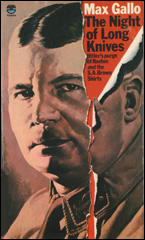 | ||||||||||||||||||||||||||||||||||||||||||||||||||||
| Canaris - Heydrich Gay Love Affair - Google Search | ||||||||||||||||||||||||||||||||||||||||||||||||||||
Thu, 24 Jan 2019 05:50:52 -0500
| ||||||||||||||||||||||||||||||||||||||||||||||||||||
| Canaris - Heydrich Gay Love Affair - Google Search | ||||||||||||||||||||||||||||||||||||||||||||||||||||
Thu, 24 Jan 2019 05:48:51 -0500
 | ||||||||||||||||||||||||||||||||||||||||||||||||||||
| Canaris - Heydrich Gay Love Affair - Google Search | ||||||||||||||||||||||||||||||||||||||||||||||||||||
Thu, 24 Jan 2019 05:47:07 -0500
 | ||||||||||||||||||||||||||||||||||||||||||||||||||||
| Canaris - Heydrich Gay Love Affair - Google Search | ||||||||||||||||||||||||||||||||||||||||||||||||||||
Thu, 24 Jan 2019 05:46:43 -0500
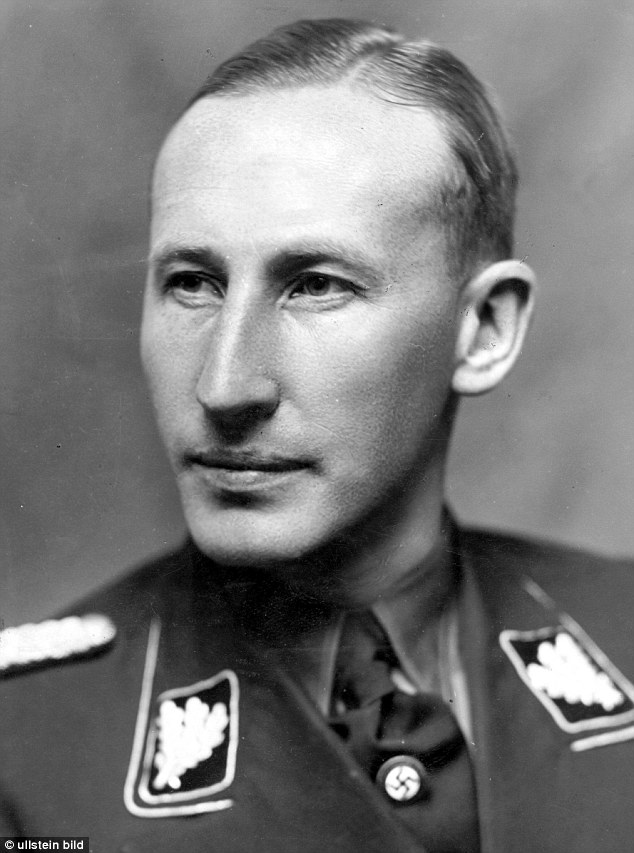 | ||||||||||||||||||||||||||||||||||||||||||||||||||||
| Canaris - Heydrich Gay Love Affair - Google Search | ||||||||||||||||||||||||||||||||||||||||||||||||||||
Thu, 24 Jan 2019 05:45:44 -0500
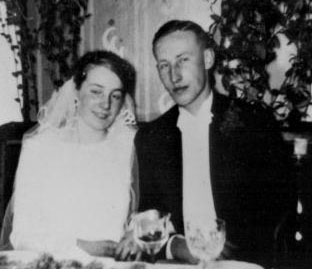 | ||||||||||||||||||||||||||||||||||||||||||||||||||||
| Canaris - Heydrich Gay Love Affair - Google Search | ||||||||||||||||||||||||||||||||||||||||||||||||||||
Thu, 24 Jan 2019 05:45:04 -0500
 | ||||||||||||||||||||||||||||||||||||||||||||||||||||
| Service record of Reinhard Heydrich | ||||||||||||||||||||||||||||||||||||||||||||||||||||
Thu, 24 Jan 2019 05:43:41 -0500
The service record of Reinhard Heydrich was a collection of official SSdocuments maintained at the SS Personnel Main Office in Berlin from 1934 until the fall of Nazi Germany in 1945. Most of Reinhard Heydrich's record was captured by the Allies and used for subsequent investigation into Heydrich's duties as head of the RSHA and overall performance in the SS in general.
Today, Reinhard Heydrich's original paper service record is maintained at the German Federal Archives. A microfilm copy of the record is also available at the National Archives and Records Administration in College Park, Maryland.
Naval career
Heydrich began his military career in 1922, joining the Reichsmarine as a midshipman (Seekadet). He was promoted to senior midshipman (Oberfähnrich zur See) on 1 April 1924 and commissioned an ensign (Leutnant zur See) in 1926. Serving as a signals officer, in 1928 he was promoted to sub-lieutenant (Oberleutnant zur See). However, the promotion further fuelled his arrogance and ambition, resulting in difficult relations with his fellow officers and sailors. Gaining a reputation as a womaniser, in April 1931 he was court-martialled and dismissed from the Navy for "conduct unbecoming to an officer and a gentleman." [1]
Summary of SS careerThe early years
When Heydrich joined the SS, it was with the understanding that he would be a primary assistant to Heinrich Himmler and also Himmler's "right hand man" when it came to SS activities in southern Germany. The SS in 1931 was divided by shifting loyalties and geographical divisions, with two SS power bases building up in northern and southern Germany respectively. Two years before the Nazis were in power, this stage of the SS did not encompass the state police forces that Heydrich would eventually be put in command of by Himmler, and his task in 1931 was to develop an internal security group and help Heinrich Himmler to gain more power within the Nazi Party and the SS.
Heydrich was enlisted into the SS in the summer of 1931. After three weeks, Heydrich was given a commission as an SS-Sturmführer and began working out of a Munich apartment to establish his Ic-Dienst which would later become the Sicherheitsdienst (SD). By Christmas, Heydrich was an SS-captain which, at that time, was known as Sturmhauptführer (prior to 1934, SS officer ranks were the same as the SA. This rank would eventually become Hauptsturmführer). Just two weeks later, Heydrich was made an SS-major as he continued to build his security service. Six months later, in the summer of 1932, he became an SS-colonel (Standartenführer) as the SS at this point had no lieutenant colonel rank. An important irony of Heydrich's standing at this point in his career is that senior SS leaders considered him rather unimportant and he was referred to by one SS Group Leader in northern Germany as a "mere" Standartenführer.
Nazi Germany
The event which catapulted Heydrich into the ranks of the SS Generals was the Nazi Party's assumption to power in January 1933. Two months later, in March, Heydrich was promoted to Oberführer and it is in this capacity that the first official photographs of him were taken. Some private photographs exist showing him as an Standartenführer from 1932, but there are no known pictures of Heydrich wearing a junior SS rank from before this time.
The year of 1933 was occupied by Heydrich and Himmler attempting to consolidate SS power and eliminate the divisions which had developed between regional SS leaders. The effort was begun to take over control of the state police forces and also to transfer SS headquarters from Munich to Berlin. Thus, by the end of 1933, Heydrich had been promoted to Brigadeführer, basically the equivalent of a major general and had moved his office to Berlin from where he commanded the SD. On 20 April 1934, Göring and Himmler agreed to put aside their differences (largely because of their mutual hatred and growing dread of the Sturmabteilung; SA). Göring transferred full authority over the Gestapo to Himmler, who was also named chief of all German police forces outside of Prussia. Himmler on 22 April 1934 named Heydrich the head of the Gestapo.[2] With the Gestapo under their control, the two men plotted as to its use along with the SS to crush the SA.
The Night of the Long Knives (30 June to 2 July 1934) was another event which significantly helped Heydrich's career as his SD apparatus (along with other branches of the SS, such as the Totenkopfverbande) and the Gestapo were used to destroy the leadership of the SA. This established the SS as the dominant paramilitary group within the Nazi Party. For Heydrich's role, he was made an SS-Gruppenführer which was the second highest rank at the time. However, at this stage in his career, Heydrich was still mainly regarded as the commander of the SD but had already begun to exert himself into other police forces including the Gestapo.
Peacetime
For the next five years, Heydrich became feared throughout Germany. Himmler, after being named the chief of all German police in 1936, incorporated together the Gestapo and the Kripo or Kriminalpolizei (Criminal Police) into sub-departments of the Sicherheitspolizei or SiPo (Security Police).[3] They were considered a complementary organisation to the Sicherheitsdienst (SD). Reinhard Heydrich was given control of the SiPo (Gestapo & Kripo) and remained head of the SD.[4]Although Heydrich was chief of the Gestapo, Heinrich Müller ran this unit's day-to-day operations.[5]Simultaneously during this time, Heydrich had begun to focus on anti-Jewish measures throughout Germany and he was tasked with overseeing security at the 1936 Summer Olympics.
Wartime
The start of the Second World War propelled Heydrich to even further power as his Sicherheitspolizei (SiPo) and his SD were merged into the Reichssicherheitshauptamt over which he was given command. The RSHA was further tasked to create and manage the Einsatzgruppen sent into Poland (and later Soviet Union) to round up and exterminate Jews, Communists, and other "undesirables".[6]
Career's end
In September 1941, Heydrich was given his first political posting as he became the Deputy Reichsprotector of Protectorate of Bohemia and Moravia. Promoted to Obergruppenführer (a full SS-General), just a few months later Heydrich was tasked by Göring to chair the Wannsee Conference at which he presented to heads of a number of German Government departments a plan for the deportation and transporting of Jewish people from every country in Europe to be worked to death or outright killed in the East.[7]
Heydrich's position in the spring of 1942 was one of great power, but his career was cut short. In May, Heydrich was attacked by British Special Operations Executive (SOE) trained soldiers of the Czechoslovakia’s army-in-exile, Jozef Gabčík and Jan Kubiš in Prague. Heydrich died in early June 1942 of his wounds.[8]
Service as fighter pilot
Reinhard Heydrich served as Reserve Hauptmann, then major in the Luftwaffe. He served in the Invasion of Poland as a turret gunner.[9]Then, despite his age, he completed a fighter pilot course in 1940. Heydrich wanted to set an example and show that the SS were not "asphalt" soldiers behind the front lines, but the elite of the Third Reich. In April 1940 he flew a Bf 110 in the Fighter Group II./JG 77"Herz As"[10] in Norway. The planes flown by Heydrich had an ancient Germanic runic character S for Sieg -- "victory" painted on the side of the fuselage. On May 13, 1940 his plane crashed during take-off and Heydrich was injured. For a short time in May, he flew patrol flights over North Germany and the Netherlands. Then, after another accident, he returned to Berlin. In mid-June 1941, before the German attack on the USSR, he resumed flying, ignoring Himmler's orders. He flew his personal Bf 109 again with Group II./JG 77 from Bălţi, Romania on the southern Eastern Front, which put the wing commander under pressure due to Heydrich's position and lack of experience. On 22 July 1941, while on a combat mission, his plane was badly damaged over Yampil by Soviet anti-aircraft fire. Heydrich made an emergency landing in no-man's land, evaded a Soviet patrol and made his way back to German lines.[11] After this, Hitler forbade him to fly in combat, as it was realized that his capture as a POW would be a major security breach for Germany. He never flew another operational sortie.
Heydrich was decorated with the Iron Cross Second (1940) and First (1941) Classes. The number of missions he flew is not known, but he was awarded the Frontflugspange (Front Pilot Badge) in silver, which usually was awarded after 60 combat missions. According to Ballantine Books' Illustrated History of the Violent Century (1973), Heydrich flew 97 missions in a Bf-110 twin engine fighter.
Possible late war assignments
Documents recovered from Heinrich Himmler's personal journals, as well as draft orders from the SS-Hauptamt, indicate that in early 1942 Heydrich was under consideration for appointment as the Military Governor of France, in an effort to supplant the army control of that posting which was by 1942 already heavily suspected of involvement in anti-Hitler conspiracies (Carl-Heinrich von Stülpnagel, who held the position of Military Governor, was later executed for participation in the 20 July Plot). Both Himmler and Hitler further had plans to create a supreme security posting, possibly known as "Commander Security Forces Europe" (Oberbefelshaber des Sicherheitsdienstleistung Europa) for which Heydrich was the natural candidate. Had Heydrich lived, he almost certainly would have been granted Waffen-SS general rank in 1944; however, a promotion to SS-Oberst-Gruppenführer and assumption to the position of Colonel General of Police is debatable, given that no other SS security officer was promoted to SS-Colonel General during the Second World War (Kurt Daluege was t
| ||||||||||||||||||||||||||||||||||||||||||||||||||||
| RUSSIA and THE WEST - РОССИЯ и ЗАПАД: - Командир, ручка от жопы отваливается! | - Ништяк, а мы её стразами укрепим! - 6:10 AM 1/7/2019 | ||||||||||||||||||||||||||||||||||||||||||||||||||||
Thu, 24 Jan 2019 05:26:55 -0500
| ||||||||||||||||||||||||||||||||||||||||||||||||||||
Thu, 24 Jan 2019 05:12:23 -0500
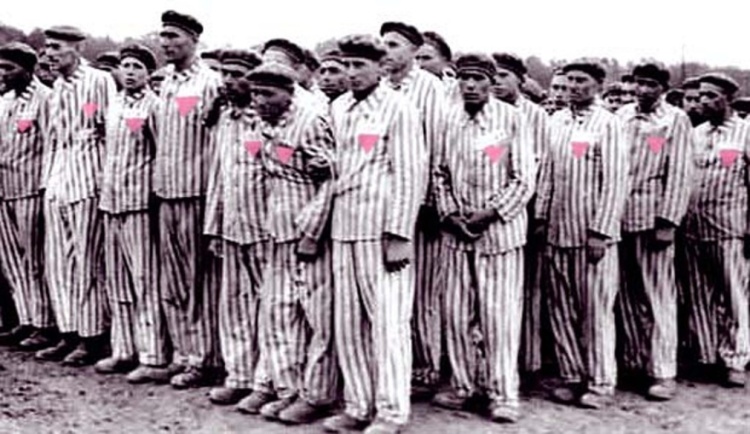 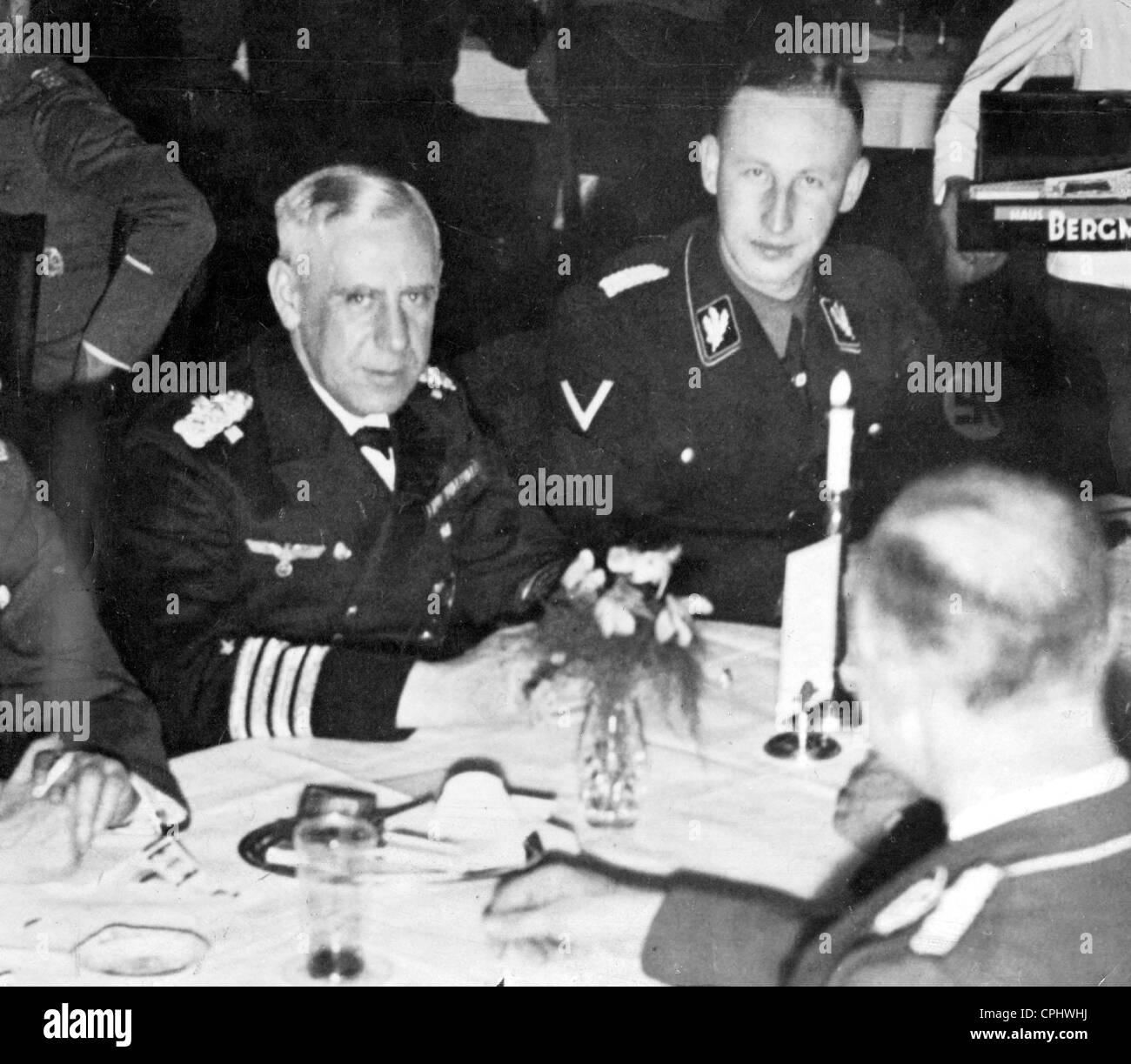
Upon the rise of Adolf Hitler and the Nazi Party in Germany, gay men and, to a lesser extent, lesbians, were two of the numerous groups targeted by the Nazis and were ultimately among Holocaust victims. Beginning in 1933, gay organizations were banned, scholarly books about homosexuality, and sexuality in general, (such as those from the Institut für Sexualwissenschaft, run by Jewish gay rights campaigner Magnus Hirschfeld) were burned, and homosexuals within the Nazi Party itself were murdered. The Gestapo compiled lists of homosexuals, who were compelled to sexually conform to the “German norm.”
________________________________
I have to puzzle you, my dear readers, with the most outrageous and at the same time the most logical theory and explanation of the origins of fascism: it sprung from the mind of Wilhelm Canaris, first as the “natural adaptive mechanism” and later as the most forceful protest against the antisemitism and homophobia; and it was emotionally rooted in his gay love affair with Reinhard Heydrich, both of whom were at least in part Jewish and Gay.
The details have to be elucidated, all the information has to be reprocessed and re-conceptualized, but that’s how it looks like, at least to me, and presently.
M.N.
1:53 PM 9/5/2018
| ||||||||||||||||||||||||||||||||||||||||||||||||||||
| Amazon.com: Hitler's Spy Chief: The Wilhelm Canaris Mystery eBook: Richard Bassett: Kindle Store | ||||||||||||||||||||||||||||||||||||||||||||||||||||
Thu, 24 Jan 2019 04:54:53 -0500
| ||||||||||||||||||||||||||||||||||||||||||||||||||||
| Heydrich's homosexuality? - Axis History Forum | ||||||||||||||||||||||||||||||||||||||||||||||||||||
Thu, 24 Jan 2019 04:52:37 -0500
Heydrich's homosexuality?
Post by Ezboard » 29 Sep 2002, 19:03
HannahR
New Member Posts: 1 (5/26/01 5:43:01 pm) Reply Heydrich's homosexuality? -------------------------------------------------------------------------------- Has anyone else seen the research paper posted on the net which asserts that the leadership of the Third Reich was ridden with homosexuals? This is a homophobic, right-wing dissertation which attempts to prove that claims of a homosexual holocaust are exaggerated. The address is: http://www.abidingtruth.com/pinkswastika/ In addition to an examination of Ernst Roehm's open homosexuality, there are the familiar arguments about Hitler's sexual orientation, but the authors also assert that Baldur von Schirach, Heinrich Himmler, Reinhard Heydrich and Wilhelm Canaris were also gay. I doubt the validity of this argument in regard to Heydrich, Canaris and Himmler. Firstly, the authors entirely disregard Heydrich's extensive heterosexual proclivities (documented by reliable sources such as Walter Schellenberg and Felix Kersten) and make no mention of Himmler's affair with his secretary Hedwig Potthast. The evidence which supports these allegations is also dubious and insubstantive. For example, take this quotation concerning Himmler: "Himmler may himself have been a homosexual. Filmmaker Walter Frenz, who worked closely with the Nazi elite (including a stint as Hitler’s private filmmaker), is reported to have traveled to the Eastern front with Himmler “whose pederastic proclivities he captured on film” " There is no information provided as to the actual existence of this footage, and the source from which the quotation was taken is dubious. Similarly, the only evidence the authors produce of Canaris' alleged homosexuality is a comment by Ernst Kaltenbrunner, a man whose acquaintance with Canaris was superficial at best. The authors also cite Canaris' friendship with Heydrich as further evidence, although Schellenberg, Hohne, MacDonald, Wykes and others point out that the relationship between these men was largely one of political expediency, not genuine fondness. Regarding Reinhard Heydrich, the only other information I have been able to find concerning Heydrich's alleged homosexuality is a reference in Alan Wyke's biography "Heydrich" refering to a brief homosexual affair that was supposedly contrived by Wilhlem Canaris while Heydrich was a naval cadet. Wykes says that Canaris contrived this dalliance in order to blackmail his protege, but as head of the SD and Gestapo Heydrich was able to abscond the file. The authors also state as evidence of homosexuality the fact that Heydrich defended Roehm in 1931. I don't know if this is true, but I do know that Roehm was the godfather of Heydrich's first child in 1933. However, the authors deliberately overlook the fact (substantiated by Schellenberg, Kersten and others)that Heydrich was a man who had no scruples about using his supposed 'friends' and and that he would simply discard them once they had served their purpose. In the interests of his infant SD, it was in the best interests of Heydrich to cultivate Roehm's good graces. Furthermore, the Night of the Long Knives should attest to the fact of Heydrich's ruthlessness once former friends had served their purpose. That Heydrich was a mysogenist and sadist (as evidenced by Kersten, Wykes and MacDonald)cannot be doubted, but mysogeny does not necessarily denote homosexuality. If you have any further information concerning the issue of Reinhard Heydrich's sexuality, or any comments about the Pink Swastika paper, I would be interested in hearing them. vladimirowich New Member Posts: 3 (5/27/01 1:12:21 am) Reply Re: Heydrich's homosexuality? -------------------------------------------------------------------------------- Hi Hannah, in reply to your topic : I take it you're absolutely right, especially concerning Heydrich who was a 100 % heterosexual. There's lots of evidence on this matter. But anyhow, why bother about people throwing mud to dead people especially if it concerns something as unimportant as they're sexual preferences. If you have read the more serious works on this period or characters you'll surely know that their sexual preferences get very few attention. sincerely, V. Scott Smith Veteran Member Posts: 610 (5/27/01 1:37:25 am) Reply Re: Heydrich's homosexuality? -------------------------------------------------------------------------------- Hi Hannah, I think the Pink Swastika site is pure bunk. It seems to appeal to ultraconservative Christians and Jews who already see the Nazis as the paragon of evil in the history of the world and seek an explanation in homosexuality, which they also do not like. As far as the Gay Holocaust, I do think the case is overstated because Homosexual conduct was illegal in all countries and still is in many places—just not usually enforced like the Nazis or some fundamentalist theocracy would. The same goes for military law. I think we need more than innuendo to show that Heydrich was even bisexual, such as a police report from before 1933 or something similar. Remember that Heydrich’s Navy career was ruined because of a sex scandal with a senior officer’s wife or daughter or whatever. If that seems harsh, it is typical of military law, a lot of it created in the “interest” of Army wives, but nowadays proving a particularly double-edged sword for women in the military, e.g., the Lt. Flynn case a few years ago. She had an affair with an enlisted woman’s husband and it ruined her Air Force career, a bit unfairly in my opinion. I’ve never really been too partial to the “nonfraternization” policy between officers and enlisted men/women, myself. And Field Marshal von Blomberg lost his career for marrying a former prostitute of all things. Anyway, I do think that Heydrich was one of those “type-A personalities,” who while zealously enforcing the rules, just as easily feel that these do not apply to them. I wouldn’t be surprised if Heydrich was experienced with more than senior officer’s wives myself but that is pure speculation. It would be a big mistake to project present attitudes on things to the past. Not every bachelor, like General Fritsch or J. Edgar Hoover, is necessarily a latent homosexual. Whether Heydrich was a misogynist or not, I don’t know. I don’t recall anything to that effect. Best Regards, Scott Edited by: Scott Smith at: 5/30/01 7:53:09 am tovarich2 Member Posts: 18 (5/30/01 6:12:00 am) Reply Not Reds but Pinks -------------------------------------------------------------------------------- Scott's first paragraph is pretty right on. I've looked at this site and it seems to be more politics than history they put two and two together and come up with 500. It's motivations seem to be pretty clearly coming from an US ultra-conservative perspective and they wish to remove the Nazi's as killers of Homosexuals and say that they were in fact Homosexuals themselves. The same stunt is pulled with the 'communist' issue. sure, the Nazis killed Communists, but really Nazism and Communism are the same thing. - bunk. Lots of politics - very little history - and some real long reaching. somewhere on the web I think there is even a 'rebuttal' post. | ||||||||||||||||||||||||||||||||||||||||||||||||||||
| Canaris - Heydrich Gay Love Affair as the source and the engine of German Fascism of 1930-1940-s - Psychohistorical Hypothesis by Michael Novakhov | ||||||||||||||||||||||||||||||||||||||||||||||||||||
Thu, 24 Jan 2019 04:15:18 -0500

Canaris - Heydrich Gay Love Affair as the source and the engine of the German Fascism of 1930-1940-s
Psychohistorical Hypothesis by Michael Novakhov

 |
- Get link
- X
- Other Apps










Comments
Post a Comment